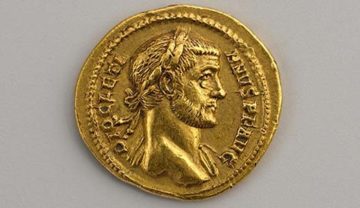From Lapham’s Quarterly:
 Writing to his uncle from quarantine in Rhodes, a twenty-eight-year-old Gustave Flaubert complained of the graffiti he had seen on Pompey’s pillar in Alexandria: an Englishman’s name carved in block letters. What right, Flaubert grumbled, did this man have to insert himself into other travelers’ experiences of the column? “Have you sometimes reflected, old uncle, on the limitless serenity of fools?” wrote the young novelist-to-be. “Stupidity is immovable…It has the nature of granite, hard and resistant.” According to him, the graffiti turned Pompey’s pillar into a monument not only to the Roman emperor Diocletian’s victory over a would-be usurper, but also to the foolishness of the public.
Writing to his uncle from quarantine in Rhodes, a twenty-eight-year-old Gustave Flaubert complained of the graffiti he had seen on Pompey’s pillar in Alexandria: an Englishman’s name carved in block letters. What right, Flaubert grumbled, did this man have to insert himself into other travelers’ experiences of the column? “Have you sometimes reflected, old uncle, on the limitless serenity of fools?” wrote the young novelist-to-be. “Stupidity is immovable…It has the nature of granite, hard and resistant.” According to him, the graffiti turned Pompey’s pillar into a monument not only to the Roman emperor Diocletian’s victory over a would-be usurper, but also to the foolishness of the public.
More here.
